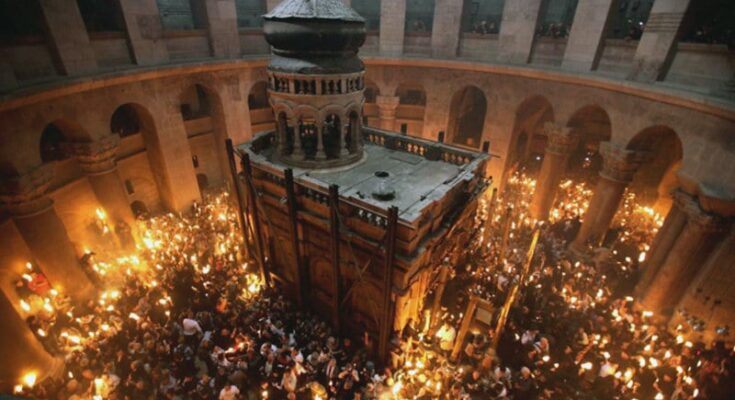
The Orthodox and Catholic Churches have been in talks for a joint celebration of Easter starting in 2015 as the Christan feast coincides with the calendar for the two churches.
The Ecumenical Patriarchate expressed a wish to establish a common celebration, starting with an official announcement. This year’s Easter, on April 20, is celebrated by both denominations.
“The wish is expressed that the common celebration of Easter next year under Eastern and Western Christianity will not be a mere happy coincidence, but the beginning of the establishment of a common date for its annual celebration, in accordance to the Easter of our Orthodox Church”, says the announcement issued after the end of the work of the Synod of the Hierarchy of the Ecumenical Patriarchate.
Why Orthodox and Catholic Easter are on different dates
Orthodox Churches still use the Julian calendar for Easter, meaning that at certain times there can be a weeks-long lag behind the Gregorian. Due to this difference in the measurement of days, the last time the two great Christian denominations shared a date for the celebration was in 2017.
For purely astronomical reasons, the difference between the celebration of Easter for the two denominations will be getting wider and wider.
As a result of this widening gap, from 2700 onward, the celebration of Easter for the Greek Orthodox Church and the Western Christian churches will never coincide again.
The last time Easter celebrations will coincide is estimated to be in 2698. From then on, Orthodox and Western Christians will never celebrate the Resurrection of Christ together again.
Altogether, in the whole of the 21st century, the celebration of Easter will be held on the same day 31 times, but during every forthcoming century, this will happen more and more rarely.
A complicating factor that caused debates throughout history was finding a single date for Easter and sticking to it. In the early days of their faith, Christians celebrated the resurrection of Jesus Christ at various times throughout the year.
It was the Holy Fathers of the First Ecumenical Council in 325 AD who came up with a uniform way of setting the date.
They decreed that Easter was to be celebrated on the first Sunday after the first full moon following the vernal equinox, but always after Passover.
To this day, the Orthodox have stuck with this method of calculating the date of the feast, leading to the celebration of Orthodox Easter usually falling later than in the Western world.
In some years, however, Eastern and Western Easter fall on the same date, and this will once again be the case in the year 2025.
In 1923, a group of Orthodox churches met in Constantinople (today’s Istanbul) to re-examine the calendar issue, eventually adopting a controversial position that important religious dates would follow the more astronomically accurate Gregorian calendar, with the exception of Easter.



